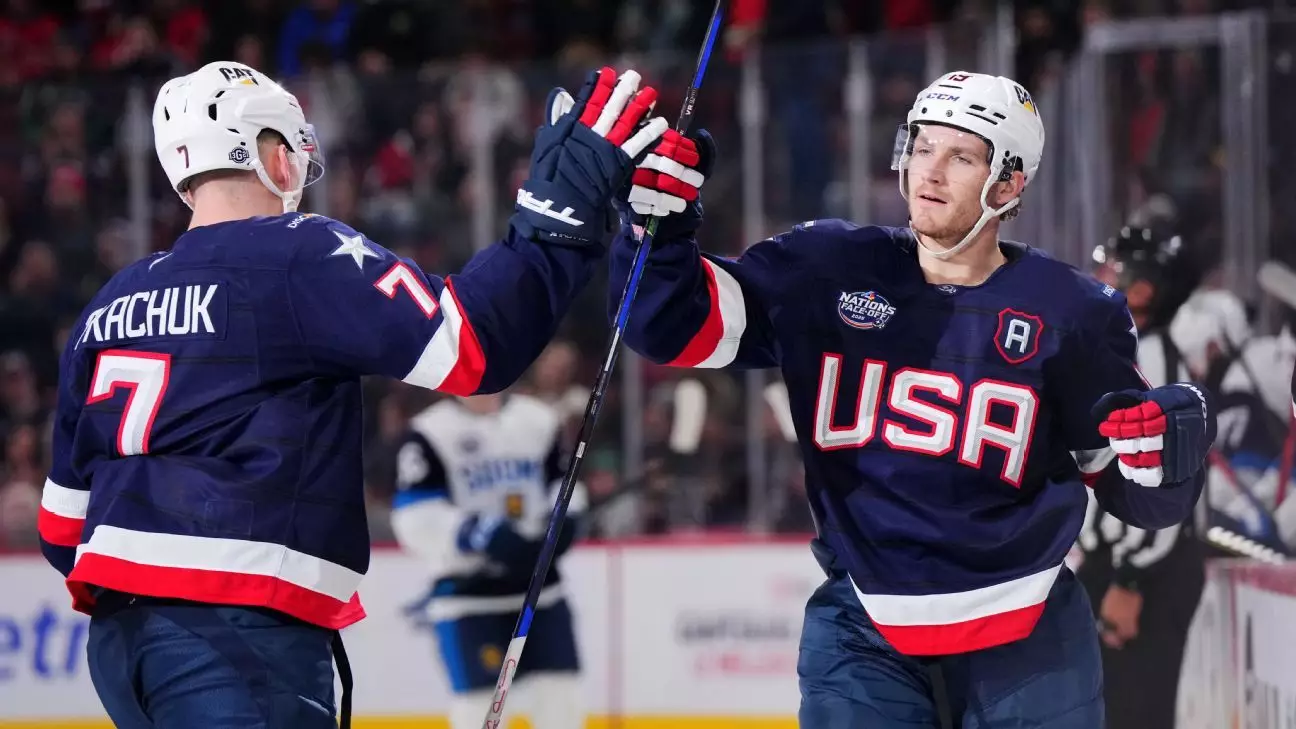The intersection of sports and politics often brings an extensive range of emotions and discussions to light, and nowhere is this more apparent than during international competitions. The recent NHL 4 Nations Face-Off championship game between Team USA and Team Canada not only reignited age-old hockey rivalries but also prompted conversations about national identity amid political tensions, particularly concerning remarks made by former President Donald Trump.
In a surprising twist, players from both teams were buzzing about a phone call they received from Trump just hours prior to their clash on the ice. For many, receiving a call from the President of the United States was surreal, with players like Vincent Trocheck and J.T. Miller expressing their astonishment at being acknowledged by such a high-profile figure. This type of attention brings an unprecedented level of excitement and legitimacy to the competition, as players realize that their skills are viewed not just in the context of a sport, but as a reflection of national pride.
Trump’s comments about Canada potentially becoming the „51st state“ added a political flavor to what is usually a straightforward sporting event, blurring the lines between entertainment and nationalistic dialogue. While Trocheck characterized the experience of talking to Trump as „awesome,“ it signifies a moment where sports become much more than a competition; they become a platform for political discourse.
As the tournament progressed, the underlying political tensions were palpable. Each game was laden with rivalry, with fans on both sides expressing their sentiments through booing during the national anthems. The significant political context surrounding the games amplified the intensity of the competition, giving rise to physical confrontations on the ice—a telling sign of the atmosphere that embodies both hockey and national pride.
This growing sense of nationalism was evident during their highly anticipated rematch following an earlier showdown, which culminated in brawls on the ice. Such acts, while viewed as part of the sport’s rugged nature, symbolize the heightened stakes that come with national identity. When opposing teams fight over pucks, there’s a deeper layer at play: a contest not just for victory but for the very reputation and pride of their respective countries.
Coaches find themselves navigating this charged atmosphere as well. Canada’s head coach, Jon Cooper, was asked whether the political discussions found their way into the locker room. His response highlighted the unique balance that athletes must maintain; while they are certainly aware of the political implications surrounding the rivalry, their primary goal is athletic performance. Cooper emphasized the importance of preparing for the game rather than engaging in political debates, reinforcing the idea that the spirit of competition and the desire to represent one’s country trumps everything else.
The political storyline, while enticing for media and fans alike, mirrors a more significant societal reflection: the melding of sports with national identity and the struggles that ensue over differing perspectives. In the realm of international sports, players often find themselves emblematic of larger conversations about nationalism, representation, and even geopolitics, which can challenge their focus but also enrich their experiences.
Despite the political backdrop, one thing remains definitive: the bond formed through the game of hockey continues to shine. The camaraderie built during intense competition can serve as a foundation for understanding and dialogue—two nations, while competing, are also connected by a shared love of the sport.
As the puck drops and the players go head-to-head on the ice, the true essence of hockey transcends any political discourse. Each goal scored or hit delivered is an affirmation of identity and unity among fans who cheer passionately for their sides. The NHL 4 Nations Face-Off championship game may become a chapter in the book of sports history, but it also serves as a reminder of how deeply intertwined sport and national identity can be, emphasizing that while political rhetoric may fuel competition, it is the love of the game that ultimately prevails.


Napsat komentář